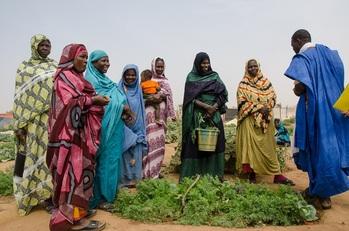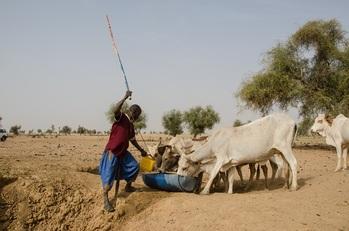Approach
The project is supporting the Ministry of Environment and Sustainable Development and the other partner ministries and institutions in integrating the issue of climate change adaptation more comprehensively into the national strategy and planning processes. The Ministry of Environment and Sustainable Development is in charge of ensuring that the National Adaptation Plan process is initiated, structured and implemented in an inclusive manner. An intersectoral committee is being established to coordinate this process. Based on a situational analysis, the participating governmental and non-governmental actors are developing a road map for the National Adaptation Plan process as well as sectoral action plans. Building on this, the project is supporting activities that focus on how the issue of climate change adaptation can be integrated into selected strategies and/or programmes related to rural development.
In order for adaptation measures to be implemented in the southern focal regions of Assaba and Brakna, the consulting company adelphi consult GmbH is firstly conducting context-specific and gender-sensitive vulnerability analyses. The results will then be used for developing options for an adapted and climate-sensitive management of natural resources and corresponding extension concepts. The partner organisations will be qualified to apply these extension concepts and will conduct pilot measures aimed at reducing the climate-related vulnerability of particularly affected population groups, such as women and men practicing small-scale farming or pastoralists. In parallel, awareness-raising campaigns tailored to specific target groups are being conducted in order to better inform the local population about the risks of climate change for food security and how they can adapt to these risks.
With a view to building up broad expertise on climate change and rural development issues, the project is helping a vocational training institution to develop a training module on the topic. In addition, training and awareness-raising activities are being conducted for technical experts and managers within sector ministries and other participating actors, such as the parliament and civil society groups. The training module is being integrated into the curricula of the vocational training institution, and the instructors are being qualified to teach it. In addition, the module is being adapted to train the staff of governmental partner institutions.
The project is co-financed by the European Union (EU). The EU-funded “Global Climate Change Alliance Program Mauritania” is being implemented in cooperation with the United Nations Development Programme (UNDP) in Mauritania.

